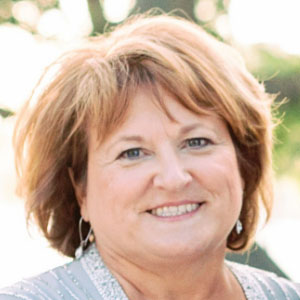Training the Next Generation of Wisconsin Nursing Home Infection Preventionists
Infection control has been a long-standing problem in nursing homes. The shift towards providing more post-acute and rehabilitation care has increased the frequency and complexity of the infections encountered in this setting. The COVID-19 pandemic has further illuminated the need for infection control in nursing homes.
STATEMENT OF NEED AND PURPOSE
In response to the U.S. Department of Health and Human Services requirement that each nursing home have at least one Infection Preventionist with specialized training, the Centers for Disease Control (CDC) developed the Nursing Home Infection Preventionist Training Course. Even so, there continues to be a desperate need for infection prevention training.
Training the Next Generation of Wisconsin Nursing Home Infection Preventionists complements the CDC course. Nurse practitioners, registered nurses, and other healthcare professionals working in nursing homes will enhance their knowledge, competence, and confidence as they engage with the course content.
This online program offers 15 on-demand courses focused on essential skills and program development tools. Interactive exercises, pre-and post-module quizzes, and infection-outbreak case studies engage today’s Infection Preventionist in both theory and practice.
PREREQUISITE
CDC Nursing Home Infection Preventionist Training Course
https://www.cdc.gov/longtermcare/training.html
We expect learners to complete the CDC's foundational training before beginning these courses. Each course within this program builds on the CDC's training.
ELEMENTS OF COMPETENCE
This continuing education (CE) activity is designed to improve learner competence in the following areas:
- ACGME/ABMS Competencies - Patient care and procedural skills, interpersonal and communication skills, practice-based learning and improvement, systems-based practice
- National Academy of Medicine Competencies - Provide patient-centered care, employ evidence-based practice, apply quality improvement, utilize informatics
- Interpersonal Education Collaborative Competencies - Roles/responsibilities, interpersonal communication, teams and teamwork
TARGET AUDIENCE
This continuing education activity is intended for physicians, nurse practitioners, registered nurses, and other healthcare professionals serving as Infection Preventionists (IPs) in nursing home settings.
GLOBAL LEARNING OBJECTIVES
As a result of participation in this course members of the healthcare team will be able to:
- Utilize an interprofessional approach in the development of a nursing home Infection Prevention and Control Program
- Perform an Infection Prevention and Control Risk Assessment, interpret the assessment results and develop a plan to respond to identified risks as needed
- Perform a variety of infection-related risk assessments, interpret risk assessment results and develop a plan to respond to identified risks as needed
- Develop an infection tracking system, interpret and report data generated from this surveillance system, and use the results to demonstrate achievement of identified goals or strategize for improving outcomes
- Employ approaches for controlling the spread of pathogens in outbreak and non-outbreak situations
CONTENT DEVELOPERS
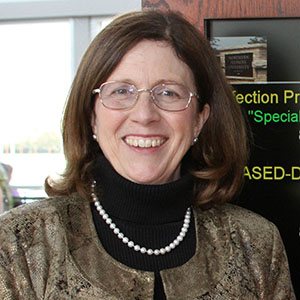 | Deb Patterson Burdsall, PhD, RN-BC, IP, CIC, FAPICDeb Patterson Burdsall has worked in long term care since 1974. Deb is board certified in infection prevention and control (CIC), and ANCC certified in gerontological nursing. Deb has a BA in psychology with a minor in biology from Allegheny College in Meadville, Pennsylvania, and a diploma in nursing from The Evanston Hospital School of Nursing. She received her MSN and PhD from the University of Iowa College of Nursing. Her doctoral dissertation study involved examining how healthcare personnel use gloves when caring for patients, and testing the reliability of a glove use surveillance tool. Deb is currently working for Hektoen Institute with the Illinois Department of Public Health. She works to find evidence-based, cost effective infection prevention strategies for long term care. |
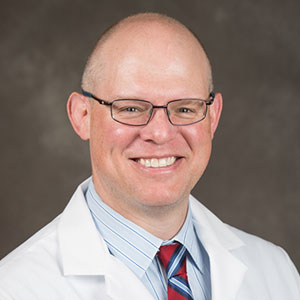 | Christopher Crnich, MD, PhDDr. Chris Crnich is a faculty member in the Division of Infectious Disease within the Department of Medicine at the University of Wisconsin School of Medicine and Public Health. He is also the chief of medicine and the hospital epidemiologist at the William S. Middleton Memorial Veterans Hospital, and the assistant director of infection control at UW Hospital and Clinics. He chairs the Society for Healthcare Epidemiology of America’s Long-Term Care Special Interest group, and its Nursing Home Antibiotic Stewardship Toolkit Development Taskforce (carried out in partnership with the American Medical Directors Association). Dr. Crnich's research interests include healthcare-associated infections among vulnerable elderly patients, with specific focuses on improving antibiotic use in skilled nursing facilities and developing and implementing effective interventions to reduce the cross-transmission of antibiotic-resistant bacteria between nursing home residents. |
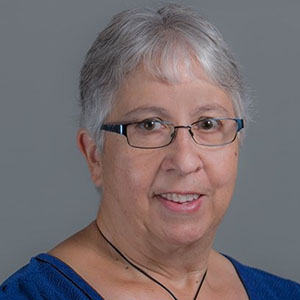 | Diane Dohm, BS (Business), MT, IP, CIC, CPHQDiane Dohm is a Nursing Home Project Specialist with MetaStar, which is a member of Superior Health Quality Alliance, our state Quality Improvement Organization (QIO). Diane’s main role is assisting Wisconsin Long Term Care (LTC) facilities with preparations to meet current regulations, enrollment in the National Healthcare Safety Network (NHSN), reduction of C difficile infection, and Antibiotic Stewardship. Currently her focus is on the facility Infection Prevention and Control Assessment Report or ICAR. Diane is a Clinical Laboratory Scientist, has a Bachelor’s Degree in Business, and has been board-certified in Infection Prevention and Control since 2008. Diane is also a Certified Professional in Healthcare Quality. Diane is very active in the Association for Professionals in Infection Control & Epidemiology (APIC), and has received the National APIC Chapter Leadership Award in 2011 & 2016. Diane also chairs the Certification review session occurring each year at APIC’s state conference. Diane is also a member of the WI HAI in LTC Coalition and the HAI Advisory Committee. |
 | Anna Eslinger, RN, CIC, WCC, OMSAnna Eslinger is a certified wound, ostomy and infection control specialist at Marshfield Medical Center in Eau Claire, WI |
| Michael Kessler, MDDr. Michael Kessler is a faculty member in the Division of Infectious Disease within the Department of Medicine. He works with medical students and residents at the UW School of Medicine and Public Health, and with fellows in the Infectious Disease Fellowship Program. He is engaged in infection control activities as a member of the UW Health Infection Control Committee and Water Management Subcommittee, and has played major roles in outbreak investigations. He is also involved in the antimicrobial stewardship committee. Dr. Kessler has presented multiple posters at Infectious Disease (ID) Week where he received an ID Week Trainee Travel Grant. He has published case reports in Journals including the New England Journal of Medicine and Transplant Infectious Diseases. Dr. Kessler was awarded membership to the Gold Humanism Honor Society. |
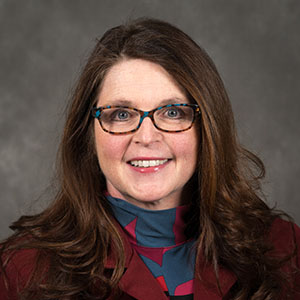 | Linda McKinley, RN, PhD, MPH, CIC, FAPICLinda McKinley, RN, PhD, MPH, CIC, FAPIC is currently a research health scientist at the VA Hospital in Madison, WI. She has practiced nursing for 37 years with three decades as an Infection Preventionist (IP). She has held numerous Association for Professionals in Infection Control & Epidemiology (APIC) chapter leadership positions in two states including chapter president in Wisconsin. She is a member of the WI Coalition for HAI Prevention in LTC that provides educational opportunities to IPs in LTC. Linda has previously served the national APIC Board of Directors and as APIC Secretary. She is recipient of an APIC Chapter Leadership Award for international activities and the SHEA Advanced Practice IP award. She has served on national Veterans Administration advisory groups, chaired the inaugural Infection Prevention and Control Field Advisory Committee and currently co-chairs the infection control subject matter expert workgroup for the VA electronic medical record project. Linda has been a speaker at local, state, national and international educational events and has mentored graduate students interested in healthcare epidemiology. She has presented numerous abstracts at educational conferences resulting in publications in peer-reviewed journals. She served on the AJIC editorial board, Associate Section Editor of APIC Text, and a scientific reviewer for the University of Wisconsin – Madison IRB and several journals including AJIC. Linda has been PI on VA funded infection control research studies, currently serves as co-investigator on a VA multi-site HAI prevention study and has facilitated infection control research in other various roles. |
 | Marilyn Michels, RN, MSN, CRRN, CIC, FAPICMarilyn has been active in infection control and prevention since 1984 and certified in infection control since 1993. She has developed training programs for novice infection control professionals. Marilyn is a licensed registered nurse and her areas of clinical experience include: intensive care, long term care, physical rehabilitation, home care and infection control/prevention. |
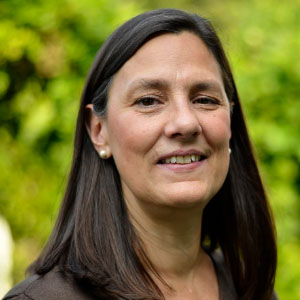 | Mary Alice Lavin, RN, MJ, CIC, FAPICMary Alice Lavin graduated from Marquette University with a Bachelor of Science in Nursing and Loyola University Chicago School of Law with a Master of Jurisprudence in Health Law. With 35 years of experience in infection prevention and control, she has worked in a variety of settings and worked as a consultant including performing nursing home infection prevention and control assessments. A member of the Association for Professionals in Infection Control and Epidemiology (APIC) since 1983, Mary Alice has been Certified in Infection Control since 1984, and became a Fellow of the Association for Professionals in Infection Control and Epidemiology in 2016. She has served as the Nominating Chair, Chapter Legislative Representative, and President of the Chicago Chapter of APIC. Mary Alice served on the APIC National Public Policy Committee from March 2013 until December 2019. She is a current member of the Regulatory Review Panel. She has presented on topics including infection control aspects of construction/renovation, ambulatory care, long term care, methicillin resistant Staphylococcus aureus, carbapenem resistant Enterobacteriaceae, Candida auris, influenza, and regulatory issues. Mary Alice has worked collaboratively for 17 years with the local and state health departments in the prevention and control of communicable diseases in healthcare organizations. |
 | Nancy Parris, RN, RHIA, MPH, CIC, CPHQ, FAPICNancy Parris is a registered nurse and a registered healthcare information administer, with a Master of Public Health in Epidemiology. She has worked in the field of Infection Prevention and Control for over 40 years, practicing in acute, long-term, psychiatric, and ambulatory care, and has consulted with state and local health departments as well as colleges. Nancy has been an active member and leader in APIC (the Association for Professionals in Infection Control and Epidemiology). She is nationally board-certified in infection control (CIC) and healthcare quality (CPHQ). In 2017 Nancy was inducted as a Fellow of the Association for Professionals in Infection Control and Epidemiology (FAPIC), a distinction of honor for infection preventionists who are not only advanced practitioners of infection prevention practice, but also leaders within the field. She has been an invited guest speaker at national and international professional conferences and has participated in research studies, published articles and authored book chapters. She has lobbied Congress, California Health and Labor Committee and the Occupational Health and Safety Administration (OSHA) for regulatory changes affecting healthcare practices. Nancy is committed to providing quality education and training for Infection Preventionists and helping to bridge the gap in the continuum of care between health care settings. |
| Karen Trimberger, RN, MPH, NE-BC, CICMs. Trimberger has over 35 years of experience as a registered nurse. She has served as a nurse manager and as a Director of Infection Prevention for a number of years. She has been an infection control and prevention consultant with the Illinois Department of Public Health. Ms. Trimberger holds Master’s degree in Public Health, is certified as a Nurse Executive and is certified in Infection Control. She is also a Certified Green Belt in Six Sigma Methodology. |
CONTENT REVIEWERS
| Christopher Crnich, MD, PhD, Course Director | Deb Burdsall, PhD, RN-BC, IP, CIC, FAPIC | Diane Dohm, BS, MT, IP, CIC, CPHQ |
| Victoria Griffin, BSN, RN, IP, SMQ, ESRD | Heather Kloth, BSN, MS, RN | Linda McKinley, RN, PhD, MPH, CIC, FAPIC |
| Amanda Westlake, MSN, RN |
PLANNING COMMITTEE
| Christopher Crnich, MD, PhD, Course Director | Deb Burdsall, PhD, RN-BC, IP, CIC, FAPIC | Diane Dohm, BS, MT, IP, CIC, CPHQ |
| Ashlie Dowdell | Anna Eslinger, RN, WCC, IP | Tola Ewers, MS, PhD, Coordinator |
| Victoria Griffin, BSN, RN, IP, SMQ, ESRD | Linda McKinley, RN, PhD, MPH, CIC, FAPIC | Marilyn Michels, RN, MSN, CRRN, CIC, FAPIC |
POLICY ON DISCLOSURE
It is the policy of the University of Wisconsin–Madison Interprofessional Continuing Education Partnership (ICEP) to identify, mitigate and disclose all relevant financial relationships with ineligible companies* held by the speakers/presenters, authors, planners, and other persons who may influence the content of this accredited continuing education (CE). In addition, speakers, presenters and authors must disclose any planned discussion of unlabeled/unapproved uses of drugs or devices during their presentation.
For this accredited continuing education activity all relevant financial relationships have been mitigated and detailed disclosures are listed below.
*Ineligible companies are those whose primary business is producing, marketing, selling, re-selling, or distributing healthcare products used by or on, patients.
The ACCME does not consider providers of clinical services directly to patients to be ineligible companies.
See each session for additional information about its faculty.
Name | Role | Financial Relationship Disclosures | Discussion of Unlabeled/Unapproved uses of drugs/devices in presentation? |
| Christopher Crnich* | Course Director, Planner, Peer Reviewer, Speaker/Author | No relevant relationships with ineligible companies to disclose | No |
| Nina Berge | Committee Member | No relevant relationships with ineligible companies to disclose | No |
| Deb Burdsall | Planner, Peer Reviewer, Speaker/Author | No relevant relationships with ineligible companies to disclose | No |
| Diane Dohm | Planner, Peer Reviewer, Speaker/Author | No relevant relationships with ineligible companies to disclose | No |
| Ashlie Dowdell | Planner | No relevant relationships with ineligible companies to disclose | No |
| Anna Eslinger | Planner, Speaker/Author | No relevant relationships with ineligible companies to disclose | No |
| Tola Ewers | Planner | No relevant relationships with ineligible companies to disclose | No |
| Sue Gaard | Committee Member | No relevant relationships with ineligible companies to disclose | No |
| Victoria Griffin | Planner, Peer Reviewer | No relevant relationships with ineligible companies to disclose | No |
| Michael Kessler | Speaker/Author | No relevant relationships with ineligible companies to disclose | No |
| Heather Kloth | Peer Reviewer | No relevant relationships with ineligible companies to disclose | No |
| Grace Leonard | Committee Member (former) | No relevant relationships with ineligible companies to disclose | No |
| Linda McKinley | Planner, Peer Reviewer, Speaker/Author | No relevant relationships with ineligible companies to disclose | No |
| Marilyn Michels | Planner, Speaker/Author | No relevant relationships with ineligible companies to disclose | No |
| Tracy Mrochek | Committee Member | No relevant relationships with ineligible companies to disclose | No |
| Mary Alice Lavin | Speaker/Author | No relevant relationships with ineligible companies to disclose | No |
| Nancy Parris | Speaker/Author | No relevant relationships with ineligible companies to disclose | No |
| Karen Trimberger | Speaker/Author | No relevant relationships with ineligible companies to disclose | No |
| Amanda Westlake | Peer Reviewer | No relevant relationships with ineligible companies to disclose | No |
| Yuyen Chang | Committee Member | No relevant relationships with ineligible companies to disclose | No |
Accreditation Statement
 | In support of improving patient care, the University of Wisconsin–Madison Interprofessional Continuing Education Partnership (ICEP) is jointly accredited by the Accreditation Council for Continuing Medical Education (ACCME), the Accreditation Council for Pharmacy Education (ACPE), and the American Nurses Credentialing Center (ANCC) to provide continuing education for the healthcare team. |
See individual courses for credit designation statements.
When you enroll in the training program, you are signing up for all of the courses at once.
Accessibility
If you need anything to participate in this program, please contact [email protected].
Registration for this activity can only be completed through the ICEP Learning Portal. Attendee registrations made through any other sites cannot be honored. UW-Madison ICEP is not able to refund fees paid through unaffiliated registration sites, such as eMedEvents.com, MedConfWorld.com, EventEgg.com, and 10times.com. Please report any unauthorized websites or solicitations for registrations to [email protected].
Required Hardware/software
Free, current version of Chrome, Firefox, Safari, or Edge. Some older browsers and Internet Explorer could produce error messages or not display the content correctly.

 Facebook
Facebook X
X LinkedIn
LinkedIn Forward
Forward
